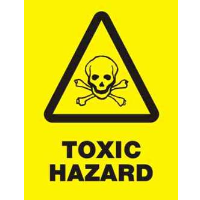State’s Toxic Substances Permit Process Is Terrible and the Department in Charge Knows It

On the same day this week that lawmakers and angry residents confronted Department of Toxic Substances Control Director Debbie Raphael over the ongoing toxic travails at Exide Technologies’ battery recycling plant in the Los Angeles area, the department released a consultant’s report (pdf) that detailed its extensive and long-running problems with the issuance of permits.
The 115-page review by CPS HR Consulting essentially said the department takes twice as long to do its job as it should because the staff has been decimated and very few people really know how the permit process works. But the problems go deeper than that.
“Currently, permit renewals average 4.3 years from start to finish, with permits issued under Federal Resource Conservation and Recovery Act (RCRA) authority taking 5.0 years and those issued under California Standard permit authority averaging 3.1 years.”
The study found that other hazardous waste disposal offices considered six months about the right amount of time to conduct permit reviews—two years at the longest for special cases. Applying that analysis to California, the report decided that the state should set a goal of 1.5 to 2.2 years, half what it does now.
The primary reason given for delays was staffing. The department needs more people. Staffing for permitting has been reduced from 95.8 in fiscal year 2007 to 24.6 two years later. It’s at 26.1 now.
The second main reason for delays was crappy management. For the last four years, “the Permitting Program Office did not maintain consistent uniform management, supervisory structure or clear consistent organizational structure.” It was a period “in which direct supervision of personnel lapsed.”
Third, the staff doesn’t know how the permitting process works. It is “interpretive and not documented.” In other words, the people who knew how it worked are gone and it’s not written down anywhere. They don’t know when and how the process begins to invoke the touchstone for environmental safety, the California Environmental Quality Act (CEQA). The same goes for the disclosure process, public participation and application reviews.
The technical review of permit applications takes most of the time (63%), and that’s the part staffers know the least about because “no formal process flow or clear instructional materials exist.”
Even if they knew the process, the staff would still have a problem because “there are no clear and objective standards for violations that would support a decision to deny or revoke a permit.” The report suggests the department at least come up with a system to categorize violations that “reflects whether they present an immediate and direct threat to human health and safety.”
The report singles out five specific projects handled by the department that have received heavy public condemnation: the Kettleman City hazardous waste dump, where numerous permit violations have been recorded; the Exide battery recycling plant in the Los Angeles area, where the company was deemed “not fully cooperative or responsive;” a Phibro-Tech treatment facility in Santa Fe Springs, which has been functioning without permits for 15 years, Chevron’s Richmond oil refinery, where advocates say fines should have been levied after a 2012 fire; and the Evergreen oil recycling facility in the L.A. area, where advocates complain that no action has been taken despite “serial leaks over two decades.”
The report also mentions some additional sites that critics beefed about to the authors and brings into play a common complaint from the public—that the department is too cozy with the corporations it is regulating.
The handling of the Santa Susana Field Laboratory and its nuclear and chemical waster just north of Los Angeles was noted for public criticism of how the owner, Boeing, was treated. Their complaints included the time “a workgroup (that included agencies and community members) . . . was dissembled by DTSC and replaced by a group with Boeing representatives taking the place of community members.” Changes in previous cleanup agreements, a perceived lack of enforcement and rampant illegal behavior were attributed by critics to “Boeing’s influence over DTSC.”
On Tuesday, a boisterous crowd complained to Raphael about the department’s decision this week to curtail an effort to shut Exide’s battery plant after it agreed to make $7.7 million in plant repairs and outreach efforts. Assembly Speaker John A. Pérez and state Senators Kevin de León (D-Los Angeles) and Ricardo Lara (D-Bell Gardens) clapped along as residents chanted “Shut it down.”
Everyone’s effort is sure to be duly noted in the next consultant report about the department’s response to the current report.
–Ken Broder
To Learn More:
Permitting Process Review and Analysis (Department of Toxic Substances Control) (pdf)
Is the Price of Exide's Vernon Battery Plant Pollution Just $7.7 Million? (by Ken Broder, AllGov California)
- Top Stories
- Controversies
- Where is the Money Going?
- California and the Nation
- Appointments and Resignations
- Unusual News
- Latest News
- California Forbids U.S. Immigration Agents from Pretending to be Police
- California Lawmakers Urged to Strip “Self-Dealing” Tax Board of Its Duties
- Big Oil’s Grip on California
- Santa Cruz Police See Homeland Security Betrayal in Use of Gang Roundup as Cover for Immigration Raid
- Oil Companies Face Deadline to Stop Polluting California Groundwater





